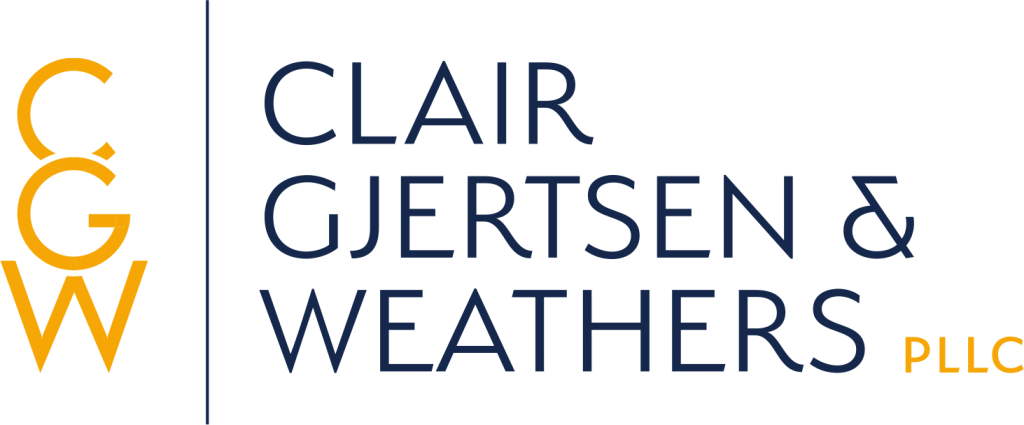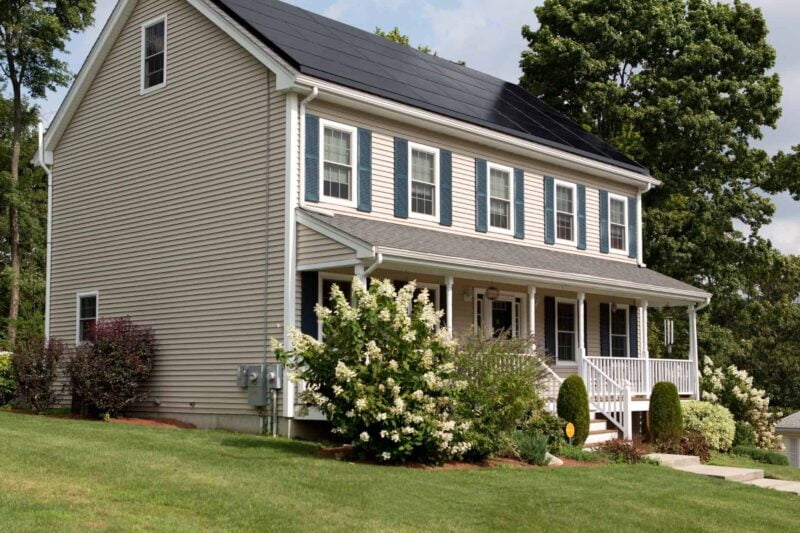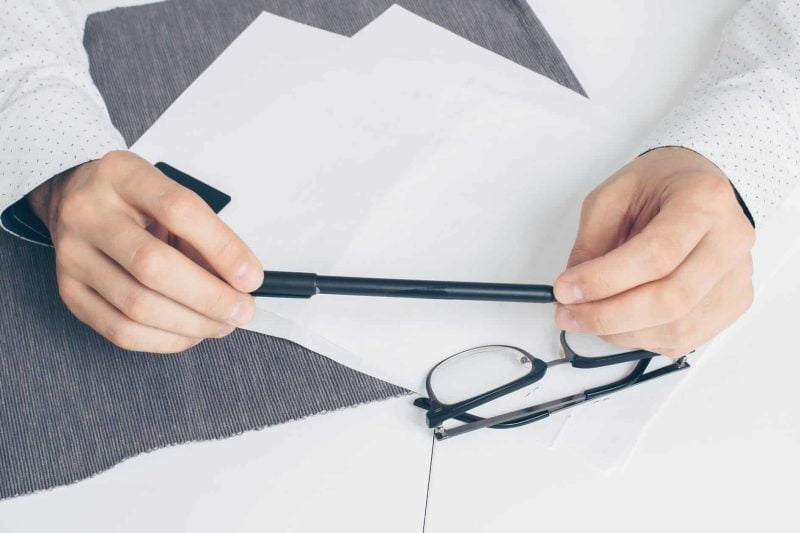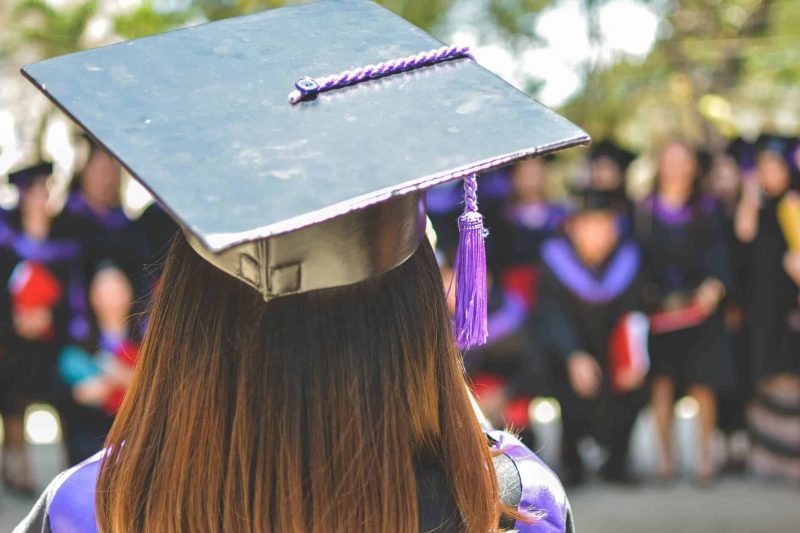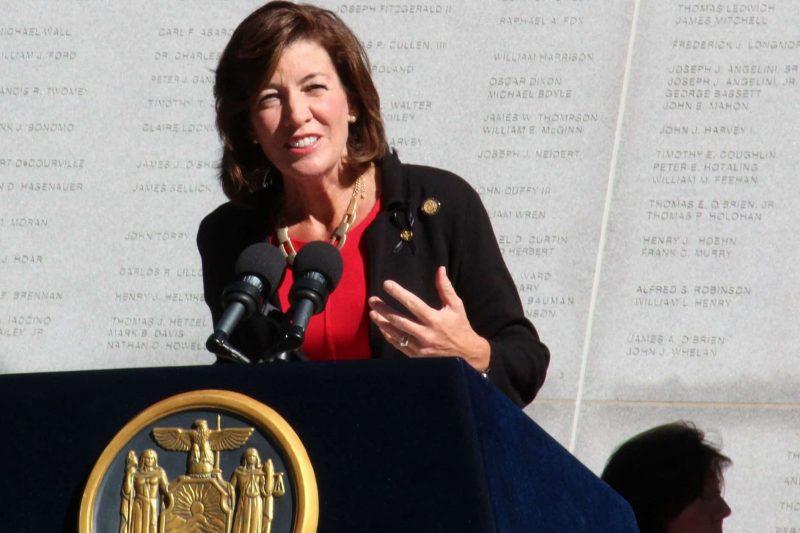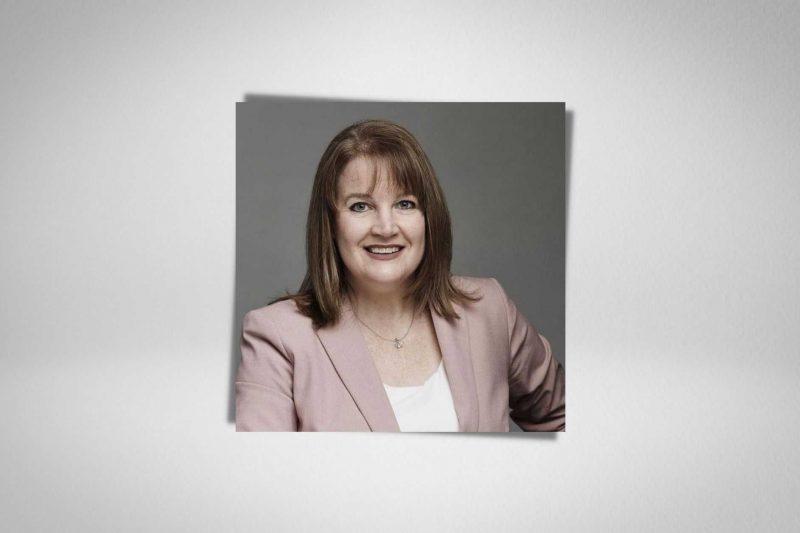NY & CT Foreclosure & Bankruptcy Attorneys
Schedule A Free Consultation 914.472.6202
In response to the economic impact caused by the COVID-19 Pandemic, New York Governor Hochul signed into law Senate Bill S671 to assist borrowers in applying for a mortgage loan modification. The new law requires lenders and/or mortgage servicers to provide a single point of contact to a borrower to communicate with the lender and/or mortgage servicer concerning mortgage loan modification, or other loss mitigation alternatives.
How does a single point of contact get appointed?
The new law first requires that a borrower request the lender and/or mortgage servicer to provide a single point of contact. This request can be made in writing or by email. Upon receiving such a request, the lender/servicer is then required to provide the contact information of the point of contact to the borrower within ten (10) business days of receipt. Any change in the single point of contact shall be communicated to the borrower within five (5) business days.
Does this new law apply to every loan?
The new law only applies to a “home loan” that originates after January 2, 2022. A “home loan” as defined by New York Banking Law 6-L is a loan:
- Given to a borrower that is a natural person;
- Secured by a mortgage other than a reverse mortgage on a 1-4 family home, condominium unit, or stock and proprietary lease in a cooperative unit;
- Which is or will be occupied by the borrower as the borrower’s principal residence in the state of New York; and
- The principal of which does not exceed the Fannie Mae conforming loan size limit at the time of origination.
What will the single point of contact assist with?
According to the new law, the single point of contact shall be responsible for:
- Communicating the options available to the borrower for modifying his or her delinquent home loan;
- Assisting the borrower with identifying the documents required to apply for a mortgage loan modification; and
- Providing the borrower with accurate information regarding the status of his or her mortgage loan modification should the borrower choose to apply for a modification of their mortgage.
What benefits does the new law give to borrowers?
The new law will require lenders and/or mortgage servicers to appoint one individual to a borrower who will be responsible for all communications on behalf of the lender and/or mortgage servicer with the said borrower. Having one person knowledgeable about the borrower’s financial situation will help streamline the mortgage loan modification process and increase a borrower’s likelihood of success at saving their home. By assisting borrowers with applying for mortgage loan modifications, more mortgage loan modification agreements will be given and the number of borrowers going into foreclosure will decrease.
The importance of hiring an Experienced Loan Modification Attorney:
Clair Gjertsen & Weathers PLLC is experienced at getting mortgage loan modifications for our clients. We will review your application fully to avoid any future pitfalls or delays in the process. We also understand that the loan modification process can be overwhelming and confusing, and that is why we’re here to assist you. For additional questions regarding the mortgage loan modification process and related foreclosure issues, we invite you to contact Clair Gjertsen & Weathers PLLC by calling 914-472-6202. We look forward to hearing from you.
Recently, a woman in California, filed an adversary proceeding in a personal bankruptcy without an attorney and was able to negotiate her approximate $350,000.00 student loan debt down to $7,200.00.
Loe was a 47-year-old woman who had accumulated federal student loan debt with the Department of Education. Loe filed an adversary complaint with the United States Bankruptcy Court for the Central District of California on August 31, 2020. The 182-page Complaint provided a detailed timeline of Loe’s physical and financial struggles of being diagnosed as a Type 1 Diabetic, while her continued attempt to better her financial status and career through the educational process.
Unfortunately, after the long process of obtaining a master’s degree in film and television in December of 2018, she was only able to obtain entry-level temp jobs on film and television sets, while working part-time at coffee shops and driving for Postmates. Moreover, prior to her bankruptcy filing, Loe had racked up extensive credit card debt and exhausted the various options for repayment assistance on her loans, including income-driven repayment plans and temporary forbearances.
When the Covid-19 pandemic hit, Loe lost her job and she had to stop delivering food on Postmates due to her health concerns and that was when Loe decided to file for bankruptcy.
Loe Student Loan Bankruptcy Settlement:
On or about August 30, 2021, Loe entered into a written agreement with her federal student loans, whereby she would agree to pay $60.00 monthly, for ten years or until October 1, 2021, and at the end of the terms, if she had remained current on her monthly payments, the remaining debt would be discharged pursuant to her Chapter 7 discharge order. However, pursuant to the agreement, if Loe misses a payment and fails to pay past the 10-day grace period, her entire student loan balance will become due again, with interest.
Also, the language of the settlement agreement make it unclear if she defaults on this agreement if this student loan debt could be discharged in a future bankruptcy.
Why it is Important to Hire a Bankruptcy Lawyer for Student Loan Debt Relief
As someone filing an adversary proceeding to discharge her student loans without an attorney, Loe did very well. However, there are questions as to whether her proceeding had gone forward, given Loe’s long and detailed medical history and enormous student loan debt, whether the Court would have found for a full discharge of her student loan debt.
“For something so important, especially for bankruptcy, it is extremely difficult to get approved, you want to make sure you have an expert on your side,” says Betsy Mayotte, president and founder of the Institute of Student Loan Advisors. This is especially true, when looking at the statistics, adversary proceedings to discharge student loan debt are incredibly low. According to an article in the Duke Law Journal, in 2017, out of the 241,000 people applying for a bankruptcy discharge with student loans, only 447 completed a request to have their loans discharged in their bankruptcy.
We can Help you File a Personal Bankruptcy with Student Loan Debt:
As seen from Loe, you technically do not have to go through an attorney when filing bankruptcy on student loans, but bankruptcy and the student loan process can be an incredibly complex process. It requires determining which type of bankruptcy you’ll file and bringing an adversary proceeding, or filing for the SLM Program. Going through it alone could mean extra time, incorrect filings, and possibly a lost case. We are an experienced bankruptcy law firm who has helped thousands of people in financial distress. We understand that student loans can be overwhelming and daunting and are here to help you through the process. Please contact us or give us a call to schedule a free consultation at 914.472.6202.
If you have equity in your home and you file for bankruptcy, there are certain requirements that must be met in order to keep your home. In both a personal Chapter 7 or Chapter 13 Bankruptcy, you can protect assets with a bankruptcy homestead exemption. Each state has a list of exemptions, so the property type and amount of equity you can protect using state exemptions varies widely and these exemptions can change every couple of years.
For example, in New York, as of April 1, 2021, the homestead exemption for properties located in Duchess, Albany, Colombia, Orange, Saratoga, and Ulster Counties is $149,975. In Kings, Queens, New York, Bronx, Richmond, Nassau, Suffolk, Rockland, Westchester and Putnam counties, the homestead exemption as of April 1, 2021 is $179,975. All other counties in New York as of April 1, 2021 is $89,975.
Homestead Exemption in a Personal Chapter 7 Bankruptcy:
If you have more equity than the homestead exemption allows for, then the court-appointed trustee in your Chapter 7 bankruptcy will sell the property and use the proceeds above your exemption amount to pay off some of your unsecured creditors, like credit cards and medical bills.
- Example 1:
- David lives in Westchester County and the fair market value of his home is $500,000.00. If David owns his home free and clear (no mortgage), and filed a Chapter 7 bankruptcy due to credit card debt, the bankruptcy trustee would be able to sell his home and use the proceeds of the sale , minus the homestead exemption to pay off the creditors.
- Example 2:
- James live in Orange County and the fair market value of his home is $250,000.00. James owns the home subject to a mortgage, where the balance is $150,000.00. Therefore, James only has $100,000.00 in equity and he files a Chapter 7 bankruptcy, James’ home would be protected, as he is under the homestead exemption of $149,975.00.
Homestead Exemption in a Personal Chapter 13 Bankruptcy:
If you have more equity than the homestead exemption allows for, then you won’t necessarily be forced to give up your property. Instead, you will have to pay your creditors the non-exempt portion of equity into your bankruptcy plan.
- Example:
- Michelle lives in Rockland County and the fair market value of her home is $200,000.00. Michelle owns the home free and clear (no mortgage). Michelle’s homestead exemption is $179,975. Therefore, she is over the exemption by $20,025.00. This means Michelle will have to structure her Chapter 13 payment plan so that the unsecured creditors will receive at least $20,025.00 over the life of the plan. This amount is in addition to any other debts your plan payment must cover.
How to Find the Right Bankruptcy Lawyer in New York and Connecticut
It is incredibly important that in order to avoid property loss, you consult with an experienced attorney who knows the ins and outs of bankruptcy exemptions. CGW has been helping people through the bankruptcy process for the last 40-years. We offer free initial consultations to see if bankruptcy is the best fit and, if so, what type of bankruptcy would best fit your needs. Please give us a call at 914.472.6202.
As discussed in a previous blog post, discharging student loans in a bankruptcy can be an arduous task. However, a recent Court of Appeals for the Second Circuit decision addressed private student loan discharge in its applicability and the legislative intent of 11 U.S.C. § 523(a)(8)(A)(ii).
In In Re Homaidan No. 20-1981 (2d Cir. July 15, 2021), the Second Circuit reviewed a decision by the Eastern District of New York, wherein the question before the Court was whether a private loan provided by Navient constituted an “educational benefit” and thus, an exception to discharge pursuant to 11 U.S.C. § 523(a)(8)(A)(ii). 11 U.S.C. § 523(a)(8)(A)(ii) excepts from discharge any obligation to repay funds received as an educational benefit, scholarship, or stipend.
Facts of the Case:
Hilal K. Homaidan had originally received a bankruptcy discharge in 2009. The discharge order was ambiguous as to whether the Navient loans were discharged. Thereafter, Navient pursued repayment and Homaidan complied. After paying off his loans in full, Homaidan reopened the bankruptcy case and sued Navient seeking, among other things, actual damages for Navient’s violation of the discharge order. After commencing the lawsuit against Navient, Navient filed a motion to dismiss alleging that its student loans were excepted from discharge pursuant to 11 U.S.C. § 523(a)(8)(A)(ii). The Eastern District denied Navient’s motion finding that Navient’s loans were not excepted from discharge.
Second Circuit Decision:
The Second Circuit affirmed the Eastern District’s holding and distinguished between private loans issued by a lender which may be used to fund a student’s college education, among other expenses, and those made through the college’s financial aid office which are made solely to cover a student’s cost of attendance. The Second Circuit also emphasized the importance of the plain meaning of the statutory text and if Congress’ intent was to except for discharge all private loans, it would have stated so.
Fifth and Tenth Circuit Court of Appeals Decisions:
The Second Circuit is now the third Circuit court to find that a private loan does not support an except for discharge under 11 U.S.C. § 523(a)(8)(A)(ii). The Fifth Circuit Court of Appeals in In Re Crocker No. 18-20254 (October 21, 2019) and the Tenth Circuit Court of Appeals in In Re McDaniel No. 18-1455 (August 31, 2020) both found that private loans were not an exception to a bankruptcy discharge.
How are private student loan bankruptcy claims affected now?
The burden is now on the creditor to prove that the loan is a “qualified education loan” as defined in the Internal Revenue Code Section 221(d). In order for the loan to be considered non-dischargeable the creditor will have to show that the “qualified education loan” was used solely to pay “qualified higher education expenses” defined as the “cost of attendance” at an “eligible educational institution”. If the Creditor is unable to prove these elements, then the loan would be considered dischargeable. However, even if the Creditor proves these elements, if the borrower/debtor can establish an undue hardship, there is still the possibility of a discharge.
We are here to help you with your Student Loans:
Given the complexities of discharging student loans in bankruptcy, it is imperative to contact an experienced bankruptcy law firm. Clair Gjertsen & Weathers, PLLC is an experienced bankruptcy law firm who has helped thousands of people in financial distress. We understand that student loans can be overwhelming and daunting and we are here to help you through the process. Please give us a call to schedule a free consultation at 914.472.6202.
On September 2, 2021, Governor Hochul signed a new Moratorium on COVID-19 related to Evictions and Foreclosures. “The pandemic has created unimaginable anxiety for families and business owners who have lost income and are struggling to pay the rent every month.” Governor Hochul said. “To help remedy the Supreme Court’s heartless decisions striking down the New York and the Biden administration’s moratorium on evictions, we are enacting a new moratorium on residential and commercial evictions and extending the protections of New York’s Safe Harbor Act to January 15. These steps will alleviate the crisis facing vulnerable New Yorkers who are suffering through no fault of their own.”
The moratorium applies to Residential and Commercial Evictions, Residential and Commercial Foreclosures and Tax Lien sales. The key difference between this legislation and the original COVID-19 Emergency Eviction and Foreclosure Prevention Act, is that there is a carve out for landlords and lenders that if they have a good faith belief that the tenant or borrower has not experienced a hardship, a motion can be made and the court shall grant a hearing to determine whether to find the hardship claim as invalid.
Residential Evictions:
For tenants who have endured a COVID related hardship, this legislation places a moratorium on residential evictions until January 15, 2022. Tenants must submit a hardship declaration to either the landlord or Court to prevent the eviction. Landlords can proceed with evictions however for tenants who do not submit a hardship declaration or if the tenant is causing nuisance, safety or health hazards for other tenants.
Commercial Evictions:
For commercial tenants who have endured a COVID related hardship, this legislation places a moratorium on commercial evictions until January 15, 2022. This legislation applies to small business with under 50 employees that demonstrate a COVID related hardship. Commercial tenants must submit a hardship declaration to either the landlord or Court to prevent the eviction.
Residential Foreclosure Proceedings:
For borrowers in default on their mortgage payments, this legislation places a moratorium on foreclosure proceedings until January 15, 2022. Borrowers who own 10 or fewer residential dwellings can file a hardship declaration with their mortgage lender or the court to prevent or stay their foreclosure.
Commercial Foreclosure Proceedings:
The legislation places a moratorium on commercial foreclosure proceedings until January 15, 2022.
Tax Lien Sales
The legislation prevents local governments from engaging in tax lien sales or a tax foreclosure until at least January 15, 2022.
Need Eviction or Foreclosure Help?
If you are late on rental payments or your mortgage payments, now is the time to talk to an attorney. We can help you navigate through this difficult time and come up with solutions to best fit your needs. Please give us a call at 914.472.6202.
Immediate Past President of the Westchester County Bar Association, Wendy Marie Weathers, has shared in the WCBA Member Spotlight her challenges in forming Clair Gjertsen and Weathers PLLC, a law firm concentrating in the areas of foreclosure defense, bankruptcy, and landlord-tenant law, and leading the WCBA as President during the COVID 19 pandemic.
Click to read the full article.
Want to reach Wendy? Contact Wendy Marie Weathers by calling 914-472-6202. She looks forward to hearing from you.
